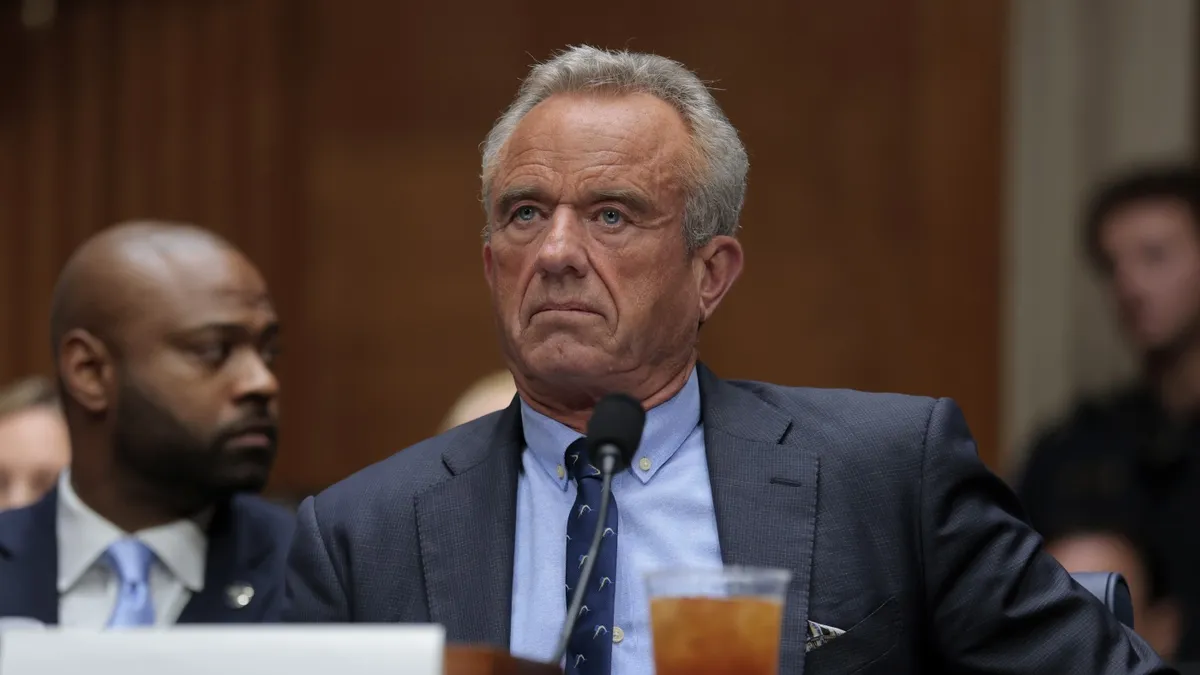
In a recent series of congressional hearings, Health Secretary Robert F. Kennedy Jr. asserted that Elon Musk's DOGE initiative played a pivotal role in shaping the spending cuts currently being implemented at the Department of Health and Human Services (HHS). Kennedy, alongside his team, has adopted these measures, although he noted that he has pushed back against certain cuts and reinstated programs that were mistakenly eliminated.
During an intense questioning session on Wednesday, Kennedy appeared before both the House Appropriations Committee and the Senate HELP (Health, Education, Labor, and Pensions) Committee. While the primary focus was on President Trump's budget plan for fiscal year 2026, a wide range of topics emerged, including Kennedy's initiatives in autism research, the ongoing measles outbreak in West Texas, and the substantial restructuring within HHS, which has seen approximately 20,000 employees either fired, laid off, or opting for early retirement.
Despite facing scrutiny, Kennedy largely defended the sweeping reforms within his agency, although he has conceded to reassess specific cuts on a case-by-case basis. He remains committed to Trump's agenda of further budget reductions for HHS, acknowledging that these decisions will lead to significant challenges.
In a notable exchange with Rep. Rosa DeLauro (D-Conn.), the ranking member of the House Appropriations Committee, Kennedy emphasized the authority of the House of Representatives in fiscal matters. In response, DeLauro accused Kennedy and the Trump administration of illegally withholding funds appropriated by Congress, asserting that they do not possess the necessary authority to do so.
Conversely, questions posed by Republican members of the committees were generally less confrontational. Sen. Bill Cassidy (R-La.), chair of the Senate HELP committee, urged Kennedy to collaborate more closely with Congress, stressing the need for an effective plan that meets statutory obligations while also enhancing transparency and accountability within HHS.
The hearings were not without disruptions; protesters interrupted the Senate proceedings, accusing Kennedy of causing harm to individuals with AIDS. Law enforcement quickly removed them, allowing the hearing to resume.
Kennedy's comments regarding Musk emerged during a dialogue with Rep. Steny Hoyer (D-Md.), where Hoyer inquired about the decision-making process behind the spending cuts. Kennedy revealed that he collaborated with Musk's team but retained the authority to override certain decisions. He cited examples of successful interventions, such as preventing cuts to the Head Start early education program.
However, Kennedy appeared uncertain when pressed for specifics about cuts, particularly concerning delays in payments to community organizations and issues related to clinical trials. He committed to investigating these matters further and providing individual updates to lawmakers.
Senator Andy Kim (D-N.J.) raised concerns about the World Trade Center health program, which saw staff reinstated, questioning why they were cut in the first place. Kennedy explained that preventing such errors would have delayed necessary reforms, which he believes are crucial for enhancing public health.
The topic of vaccines emerged prominently during questioning from Sen. Chris Murphy (D-Conn.), who accused Kennedy of eroding public confidence in vaccination safety. Kennedy countered with an analogy, suggesting that if he were to advise someone to swim in a lake known to contain alligators, they would expect a warning about the potential danger.
In a corrective response, Sen. Cassidy clarified a point made by Kennedy, asserting that numerous vaccines, including rotavirus, measles, and HPV, have undergone evaluations against placebo groups, contradicting Kennedy's earlier statement.
In earlier discussions with Rep. Mark Pocan (D-Wisc.), Kennedy expressed his intention to vaccinate a small child against measles if he were a parent today, although he refrained from commenting on polio or chickenpox vaccines. He cautioned against taking medical advice from him, further complicating the conversation around vaccine safety.
As the hearings concluded, DeLauro highlighted that Republican members have successfully engaged with Kennedy's HHS to restore staffing for several legally mandated programs, while communications from Democrats have often gone unanswered. She pointedly questioned, “Who do Democrats have to call?” referencing a request for reinstating a crucial program for lead poisoning prevention.